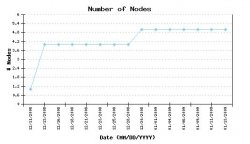Differences between Drupal and Wordpress
Webmasters who launched the site on Wordpress, as it is easy to install and use, may try to upgrade to Universal CMS and provide broader capabilities such as Drupal.
You can make about all kinds of sites using Wordpress (blog, e-commerce, digg-like), and also with Drupal, with wider capabilities.
You need to understand that the transition from one world to another is tantamount to the transition from one world to another, completely different.
Both software products have a lot in common:
- Free and open source.
- Multiple users with multiple permission levels.
- Blog API support.
- Interchangeable patterns.
- Comments on articles.
- Significant Permians.
- Creating RSS feeds.
- Multilingualism.
- Extension modules (called WordPress plugins).
What we will study is the differences...
Code
Wordpress is based directly on MySQL, while Drupal has a common interface for databases, and therefore can also use PostgreSQL.
Wordpress has its own template system. Lighthouses are used to create personal designs. While Drupal allows you to use different template languages: Smarty, PHPTAL. The default template mechanism is PHPTemplate.
Page structure
Drupal is clearly superior when there is template set flexibility. Its blocks can be located anywhere on the page, while WordPress widgets have only the exact location (side panels).
Content types
WordPress has several categories of pre-installed content: post and pages, comments, categories, etc.
Drupal offers a single basic structure - a node (node) from which you can build any type of editorial object. There are three preset types: book, page and ticket.
A new content type is defined by creating additional fields (since variables are added to the derived class, for programmers).
On Wordpress, you can create custom fields that meet the same need, but are less complex.
Release of tickets
WordPress includes an improved version of the Tiny MCE online editor. While Drupal leaves the editor choice, so you will have to install Tiny MCE or another editor to get something other than a simple form!
Wordpress also easily outperforms it when you want to connect it to a local editor like Live Writer. This is done with Drupal, but it is noticeably more time-consuming, as evidenced by the procedure for connecting Drupal to Live Writer.
Categories
What will confuse the Wordpress user the most when he goes under Drupal is category management. Wordpress is very simple here, we have a list of categories and tickets are classified.
Drupal allows you to create complex and multi-level taxonomies to classify parts in different points of view.
Statistics

Many statistical plugins can complement WordPress, while Drupal offers a complete integrated statistical tool with graphics (see right).
This is one of the few times that Drupal offers a tool external to Wordpress by default. This is probably due to the fact that the statistical tool created by the Wordpress developers works by storing data on the publisher's website, which is not necessarily the best choice for a webmaster.
Resources
WordPress uses 10 SQL tables, while Drupal requires 46, which quickly increases and reaches 68 when modules were added that provide basic WordPress functions.
It is clear that the consumption of Drupal resources is much greater!
Must cron
Drupal does not automatically update page access accessories such as sitemap, tag cloud... You must configure the server's cron service to do this regularly.
WordPress updates when editing articles.
Another detail that makes Drupal not software made to free the webmaster from site management tasks!
Expansions
Wordpress has more extensions than Drupal. Each of the two CMSs includes additional features.
Major features are included in Drupal, not Wordpress.
- Paging.
- Statistics.
Internal WordPress functions added as an external module for Drupal.
- Tag cloud.
- URLs made from keywords.
- WYSIWYG editor.
Conclusion
Drupal is noticeably more difficult to understand than Wordpress, and also more difficult to build a platform. The opposition is that it may be more individualized and more suitable for a particular purpose.
The decisive advantage of Drupal is the integrated cache system, which significantly speeds up access to the most visited pages .